I like poems that make an argument in favor of this earthly life. As the title suggests, the "Things of This World" are touched by our capacity for love.
Of his poem, Wilbur has said:
"You must imagine the poem as occurring at perhaps seven-thirty in the morning; the scene is a bedroom high up in a city apartment building; outside the bedroom window, the first laundry of the day is being yanked across the sky and one has been awakened by the squeaking pulleys of the laundry-line."
So the speaker awakens to the sound of laundry being hung to dry in the city, on lines between buildings:
"The eyes open to a cry of pulleys."I like the double meaning of the eyes opening in both a physical and spiritual sense. It is that moment when we first awake and are still, for a moment, held inside the magical world of sleep:
"And spirited from sleep, the astounded soul / Hangs for a moment bodiless and simple / As false dawn."The image of our souls hanging "bodiless and simple" like laundry is lovely and haunting.
I've often puzzled over the reference to "false dawn." Tonight I remembered seeing a false dawn when I was in Vermont, spending a particularly miserable rainy night in a leaky tent. I had no watch and kept thinking the skies were lightening. I experienced that false dawn for many hours as the wet tent flapped against my back.
Dawn means revelation. I think maybe Wilbur is saying that the laundry incident is a false revelation, but false only in the sense of not being permanent. I do believe the moment of transcendence is true, though, for as long as it lasts.
The speaker compares the laundry to angels:
"Outside the open window / The morning air is all awash with angels. / Some are in bed-sheets, some are in blouses, / Some are in smocks: but truly there they are. / Now they are rising together in calm swells / Of halcyon feeling, filling whatever they wear / With the deep joy of their impersonal breathing."
The speaker is in a moment of transcendence. Now comes the time for moving back among the "things of this world." Wilbur writes:
"The soul shrinks / From all that it is about to remember, From the punctual rape of every blessed day, / And cries, 'Oh, let there be nothing on earth but laundry, / Nothing but rosy hands in the rising steam / And clear dances done in the sight of heaven.'"
The soul wishes to remain in the ecstatic moment, but of course we fall back to earth by remembering our duties and schedules. But another pull toward earth is "bitter love," the acceptance of the body for what it is:
"Yet, as the sun acknowledges / With a warm look the world's hunks and colors, / The soul descends once more in bitter love / To accept the waking body..."
The final stanza expresses love for the lowest of creatures, thieves. It shows how the pure (lovers) become sullied and how the heavy walk light and attain balance:
"'Bring them down from their ruddy gallows; / Let there be clean linen for the backs of thieves; / Let lovers go fresh and sweet to be undone, / And the heaviest nuns walk in a pure floating / Of dark habits, / Keeping their difficult balance.'"
I think the "difficult balance" is what we all must keep. We live in the body. Since our waking hours are spent more inside the body than the soul, we should learn to enjoy our earthly existence. We learn to enjoy it by loving, even when it is hard to do so. Even when our experience here proves to be bitter and hard.



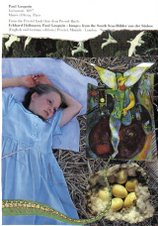


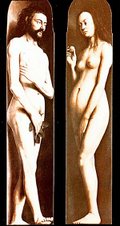

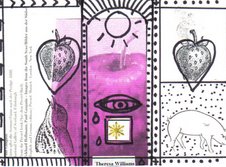
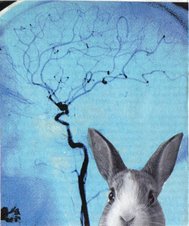
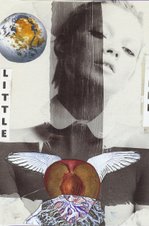
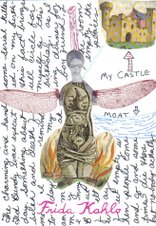
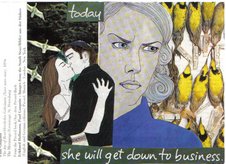

No comments:
Post a Comment